基于单片机的无线遥控倒计时器的设计(附电路原理图,实物图,程序,元件清单)
无需注册登录,支付后按照提示操作即可获取该资料.
基于单片机的无线遥控倒计时器的设计(附电路原理图,实物图,程序,元件清单)(课题说明书,开题报告,中期检查表,论文11000字)
摘 要 随着科学技术在社会领域不断渗透,单片机应用越来越广泛,以单片机为核心的智能设备也成为主流。本次设计的倒计时器采用单片机STC89C51以及无线模块nRF24L01,并利用数码管显示器来进行显示,以实现无线遥控倒计时的目的。通过按钮可以设置倒计时时间,采用延时方式,当倒计时到最后5秒,蜂鸣器报警以及发光二极管变亮,共同指示倒计时即将结束,倒计时的剩余时间由数码管显示器实时显示。该系统可以针对不同的情况进行倒计时实时控制,倒计时过程可以随时开始、随时暂停,具有一定的灵活性和实用性,可以广泛的应用于需要倒计时的场所当中。
关键词 单片机; 无线遥控; 倒计时器
Design of wireless remote control timer based on single chip microcomputer
AbstractWith the development of science and technology in the social field, the SCM has been widely applying. As the core, the SCM has become the mainstream in intelligent devices. This design of the countdown timer uses the SCM STC89C51 and wireless module nRF24L01, and it displays the time on nixie tubes, so as to achieve the purpose of wireless remote control countdown.Press the button to set the countdown time and adopt the way of delay to carry on the countdown. When the countdown reaches the last five seconds, the buzzer sounds and the LED lights up. The signal means the countdown is almost over. The digital tube displays the remaining time in real time. This system can control different situations with its flexibility and practicality. It can start timing and pause timing at any time. This countdown timer can be used in countdown sites widely.
KeywordsSingle chip microcomputer;Wireless remote control;The timer
设计要求
利用STC89C51单片机并结合数码管显示器以及nRF24L01无线模块来设计一个可以以实现无线遥控的倒计时器,可用来计时烧水、体育活动上的计时等等。
基本功能:
(1)显示:合理的采用n段数码管,倒计时的时间剩余值能实时的显现出来。
(2)无线遥控:采用nRF24L01无线收发模块,相当于“遥控器”,与主机进行信号的传递,实现系统的遥控功能。
(3)声光报警:蜂鸣器用于声音报警,发光二极管用于灯光指示报警,两者结合共同指示倒计时即将结束。
2.2 工作原理
本设计是用数码管显示器上呈现的数字来显示倒计时时间的,单片机STC89C51作为系统的微控制器[2]。以单片机管脚功能为理论依据,通过软件编程及设计硬件电路,结合单片机STC89C51以及无线模块nRF24L01来实现远程无线遥控倒计时的功能。通过启动按钮可以设置倒计时的时间,然后每过一秒钟的时间往下减一秒,当倒计时时间逐渐递减至最后5秒,蜂鸣器的电平状态发生改变,会出现报警的现象,LED发光二极管改变原来的电平状态,由黑变亮,以此来作为倒计时即将结束的标志,在倒计时计数减为0时,报警才会停止,并且在倒计时过程可以随时进行暂停计时、开始计时以及复位。
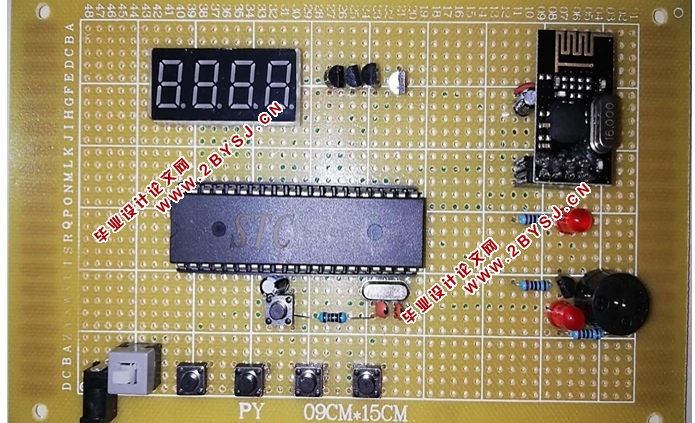
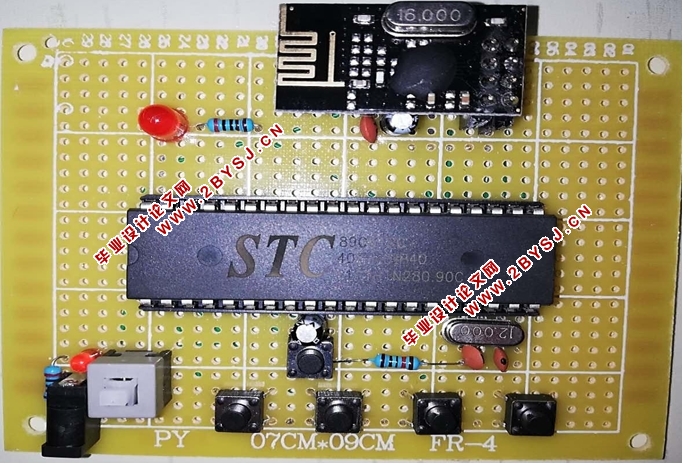
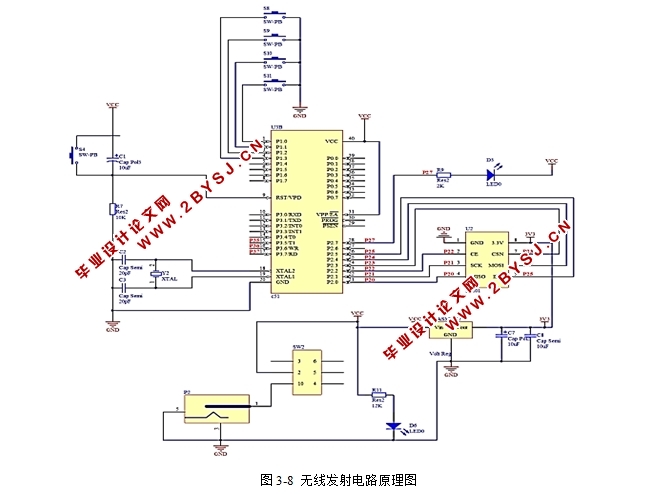
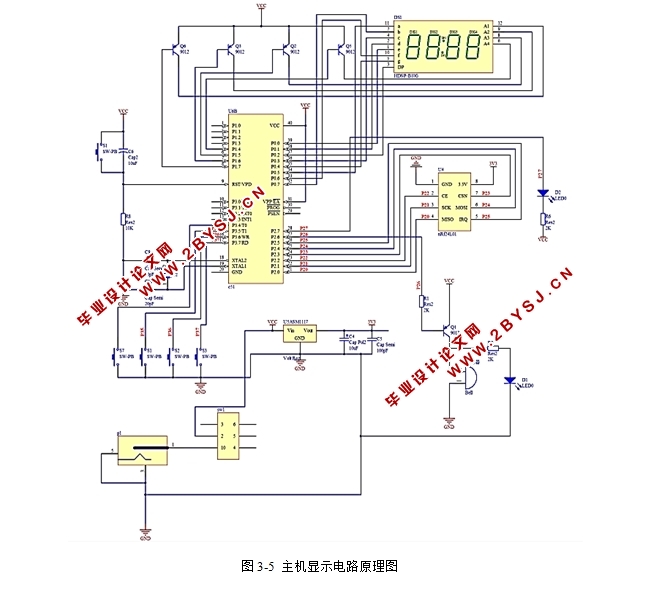
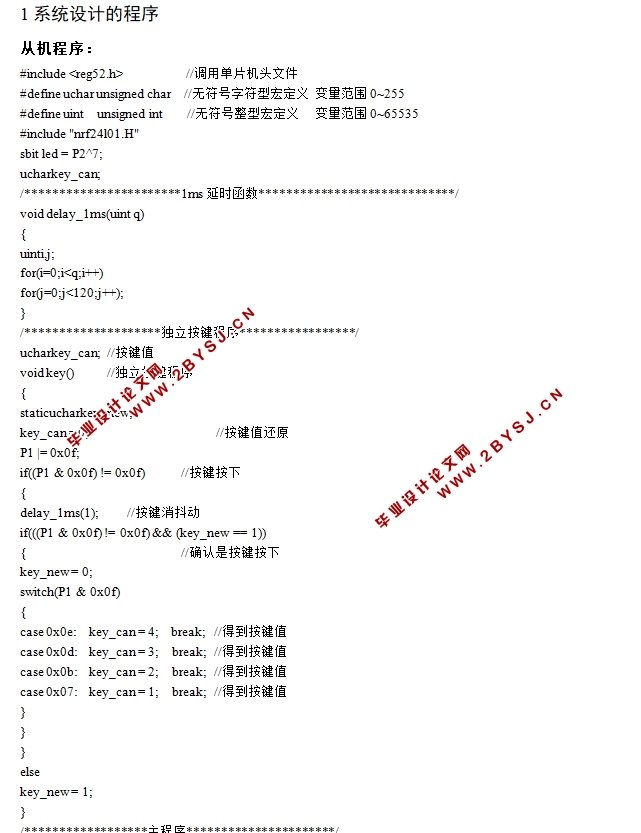
目 录
摘要及关键词 1
1 绪论 1
1.1 课题背景及实际意义 1
1.2 相关领域的发展状况 1
1.3 课题研究内容 2
2 系统总体设计 2
2.1 设计要求 2
2.2 工作原理 3
2.3 方案选择与论证 3
3 系统硬件的设计 3
3.1 系统整体设计 3
3.2 最小系统模块 4
3.3 显示电路部分 7
3.4 无线收发部分 8
3.5 蜂鸣器控制部分 12
3.6 复位电路部分 13
3.7 按键部分 13
4 系统软件的设计 14
4.1 主机程序流程 14
4.2 软件调试过程 16
5 结论 18
参考文献 18
致谢 20
附录 21
